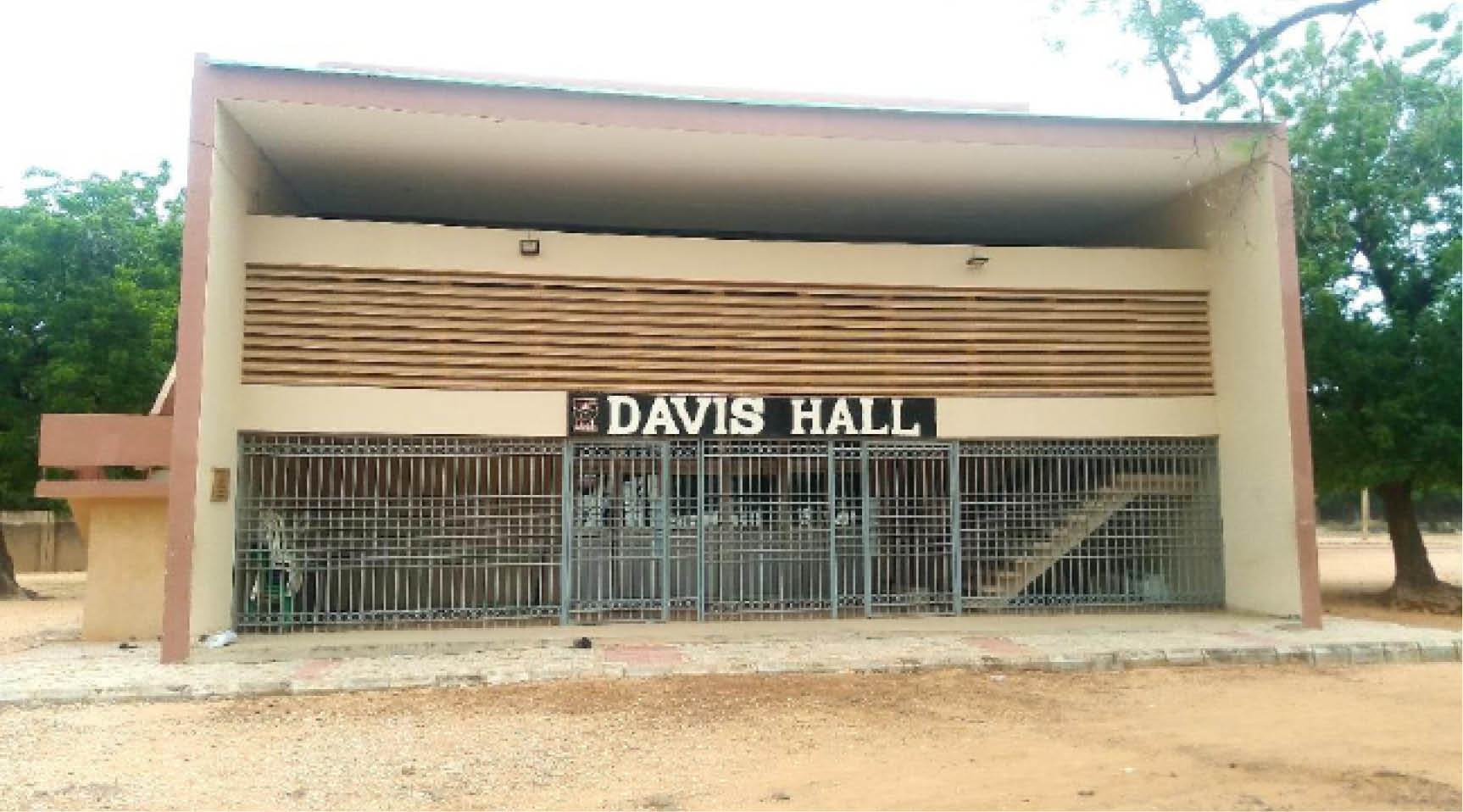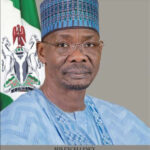For those coming to Sokoto for the first time through Gusau axis, the first point of attraction is the Federal Government College Sokoto, because of its strategic location and how its entrance is beautified with flowers and granite. The school also serves as the first bus stop, especially for interstate commercial vehicles.
The first mention of Unity school in Nigeria dates back to 1966. That year, three unity schools, or Federal Government colleges were established. Those were the colleges in Okposi (Eastern region), Sokoto (Northern region) and Warri (Midwestern region).
Federal Government Colleges (FGCs) and Federal Government Girls Colleges (FGGCs) were established to promote unity and national integration. They are the only set of secondary schools that belong to the federal government in Nigeria because secondary education, by law, is directly the responsibility of state governments. Former Head of State, General Yakubu Gowon (Rtd) once told an audience why he established FGCs in the then 12 states of the federation. He said only four unity schools existed in the country at the time he became Head of State and his decision to establish a federal unity school in each state was informed by his visit to FGC Sokoto in 1973. He said he was impressed by the sense of unity (regardless of ethnic or religious background) which he observed among the students during the visit.
Former President Olusegun Obasanjo was said to have also praised the high standards of the school in 1977, during a visit where he made a remark that FGC Sokoto was the best school in Nigeria then, in terms of educational standard and unity.
A former chairman of the Old Boys Association, Sokoto State chapter, Malam Hassan Maccido, said academic activities in the school did not start until 1967 and their first set graduated in 1971.
The school started with class one and lower sixth forms. In 1971, 70 students sat for West African School Certificate and 53 for the Higher School Certificate. And in 1981, 89 students were presented for West Africa School Certificate and only 7 for Higher School Certificate, the school became purely a Secondary School as the Higher school section was phased out and transferred to Federal School of Arts and Science now Federal Science College, Sokoto.
Among the pioneer students of the school were former Chief of Defence Staff, General Victor Malu; Air Vice Marshall Oluseyi Fintiri; a former governor of Cross Rivers State, Donald Duke; a former Minister of Health, Onyebuchi Chukwu; and a former First Lady of Nigeria, Justice Fati Abubakar.
 Other old students of the school include Air Commodore Hambali Tukur (Rtd), a former National President of the Nigeria Bar Association, Abubakar Mahmoud and the Emir of Bagudu among others.
Other old students of the school include Air Commodore Hambali Tukur (Rtd), a former National President of the Nigeria Bar Association, Abubakar Mahmoud and the Emir of Bagudu among others.
According to Daily Trust findings, the college is faced with a shortage of laboratory equipment and one of its hostels, Benue hostel, requires serious rehabilitation.
A staff of the college, who sought anonymity, told our reporter that the hostel is becoming unsuitable for students because of bad roofing which needs to be replaced.
The staff stressed the need for additional toilets in the school, particularly in students’ hostels, adding that the existing ones need to be renovated.
Although the principal of the school denied our reporter access to the hostels and other facilities in the schools, a senior student of the college said there are four hostels for male students named – Benue, Osun, Niger and Rima.
He said that in his hostel, there are 12 bathrooms and toilets which require rehabilitation. He added that the hostel is currently under renovation, which they hope would be extended to the toilets.
“We are about 50 in our room. The school provided us with beds but we come with our mattresses,” he said.
On feeding, he said they were given either tea with bread, noodles with egg, sweet potatoes with sauce, or pap with bean cake as breakfast.
According to him, they were served white rice and stew, jollof rice with Zobo, or spaghetti with orange as lunch, while eba or tuwo with vegetable soup is usually what was given to them as dinner.
Our reporter, who was able to get into one of the classrooms, observed that each student had his own plastic chair and desk. The senior student explained that a new student is given his own chair on arrival.
One of the fascinating structures in the school is the state-of-the-art library, though with many empty shelves.
Daily Trust Saturday discovered that the college’s staff school is attested to be one of the best in terms of academic standard in Sokoto State.
A member of the Parents, Teachers Association of the college, Engineer Mannir Umar, said the educational standard of the school is within an appreciable level.
Mannir , who has three children in the college and one in the staff school, said the college still maintains its standard despite old age.
Why the college was established
Hassan Maccido, who is the son of late Sultan Muhammad Maccido and a member of the 1980 set, said the idea of establishing the school was conceived by Nigeria’s founding fathers after independence when there was a serious challenge threatening the unity and peaceful coexistence of Nigerians.
“You know Nigeria was the making of our colonial masters and the various ethnic groups were not consulted before our creation as one entity. So, there were serious challenges, especially when the North which was at the time lagging behind in terms of education, took the upper hand because of its numerical strength, a move which did not go down well with other ethnic groups in the southern region of the country,” Maccido recalled.
“It was in view of this that our leaders then thought of changing the mindsets of the people and that brought about the establishment of unity schools in the country. They started with one in the north, another in the south and one in the Midwest, and students were drawn from all over the country.”
According to him, it was the success of these schools that gave birth to the National Youth Service Corps (NYSC) during the General Yakubu Gowon-led Military government.
Maccido, who joined the school in 1975, recalled how they were provided with virtually everything by the federal government.
He said that life was so beautiful to the extent that they felt more comfortable spending holidays at school.
“There was a time one of my classmates, Ayo, from the south, decided to spend his holidays in Sokoto without the consent of his parents. His parents, having waited for his return for almost a week, got worried and came to the school to look for him,” he narrated.
“When they discovered Ayo was with me, they didn’t pick any offence. They only told him to always inform them any time he decides to spend his holidays with his friends in Sokoto. And they went back and left him here.”
Maccido further recalled that their principals were either Europeans or foreign-trained teachers and they went on frequent excursions within the country, which broadened their knowledge about the country and its cultural heritage.
He added that school programmes were tailored to make men out of them while being trained to be good in character and learning.
“Every class and hostel was made up of students from every part of Nigeria. We are only eight in my hostel, but they made sure it was a true reflection of Nigeria,” he said.
He said that there was no preferential treatment for children of prominent Nigerians in the school, recalling how a son of an Education Commissioner of the old Sokoto State was expelled from the school for resuming late.
“There was a time we broke a chair and we were forced to pay despite the fact that my father was the chairman, Governing Board of the college. And my father had to write an undertaking that I would be of good characters before they allowed me back to school,” he said.
Hassan, however, regretted the upsurge in the number of unity schools in the country which he described as counter-productive.
He maintained that there was no justification in establishing over 100 federal government colleges in the country because they would not help to achieve the objective of fostering unity in a polarized country such as Nigeria.
“They should be downsized to a manageable level so that they can achieve their objectives. It should be one unity school per geopolitical zone as creating more is counterproductive. Now, students’ enrollment is localized,” he stated.
He reiterated that the motive of establishing unity school was to bring students from different tribes and regions to come together and understand themselves, which would foster unity in the country, but “all this was rubbished by the upsurge of unity schools in the country.”
Maccido said the intervention of old students last year alone amounted to N50m which he said was spent on renovation of blocks of classrooms, halls and in buying a Peugeot car (407) for the principal.
The principal of the school, Malam Ibrahim Uba, said he could not grant any interview or allow our reporter access to any of their facilities without getting permission from their mother ministry, but one of their staff who pleaded not to be named, said the school was not lacking in terms of infrastructures and teaching aides.
“But we need more staff for English, Maths and other key subjects,” he said.

 Join Daily Trust WhatsApp Community For Quick Access To News and Happenings Around You.
Join Daily Trust WhatsApp Community For Quick Access To News and Happenings Around You.


